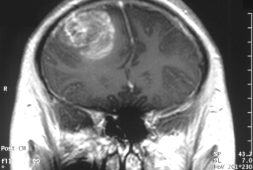Alzheimer’s is a disease that strikes millions of people worldwide. Friends and family of the patients know just how ruthless this can be as they watch the person they love slowly become a hollow of a shell of what they once were.

Doctors have preached out brain exercises that help alleviate the signs of Alzheimer’s or avoid the disease altogether, but what they recently discovered is that supportive social interactions during adulthood is quite crucial. Talking to someone can help stave off the cognitive decline that comes with the disease. This was recently discovered in a new study.
Researchers did a study and what they observed may be groundbreaking. It has been revealed that simply by having someone to talk to most or all of the time helps. This person is one that you can count on to listen to you. When people have this, there is greater cognitive resilience. As they say, cognitive resilience is a measure of the brain’s ability to function better than expected when compared to actual physical aging. The disease-related changes in the brain that come with it can be addressed by engaging in mentally stimulating activities, physical exercise, and positive social interactions. Many neurologists believe that cognitive functioning can be especially boosted by the latter activity too.
Lead researcher Joel Salinas, MD, the Lulu P. and David J. Levidow Assistant Professor of Neurology at NYU Grossman School of Medicine and member of the Department of Neurology’s Center for Cognitive Neurology, spoke about this and said, “We think of cognitive resilience as a buffer to the effects of brain aging and disease.”
He further stated, “This study adds to growing evidence that people can take steps, either for themselves or the people they care about most, to increase the odds they’ll slow down cognitive aging or prevent the development of symptoms of Alzheimer’s disease—something that is all the more important given that we still don’t have a cure for the disease.”
In reality, there is an estimated 5 million Americans who are living with Alzheimer’s disease. As said in several literatures, this is a progressive condition that affects people who are over 65 years of age, and this interferes with memory, language, decision-making, and the ability to live on their own.
Salinas also explained that while the disease usually affects those from the older age bracket, the results from the research made also show how the younger folks could benefit from finding importance in the social support available to them as well. For every unit of decline found in the brain volume, individuals in their 40s and 50s with low listener availability showed a cognitive age of four years older when compared to those with a higher listener availability.
Explained Salinas, “These four years can be incredibly precious. Too often we think about how to protect our brain health when we’re much older, after we’ve already lost a lot of time decades before to build and sustain brain-healthy habits.”
“But today, right now, you can ask yourself if you truly have someone available to listen to you in a supportive way, and ask your loved ones the same. Taking that simple action sets the process in motion for you to ultimately have better odds of long-term brain health and the best quality of life you can have,” he further stated.
Salinas highly recommends to physicians to consider adding a question that comes with the standard social history portion during an interview. He said that they need to ask patients whether they have access to someone they can count on to listen to them should the time come when they need to talk and air out their emotions.
“Loneliness is one of the many symptoms of depression, and has other health implications for patients,” explained Salinas. “These kinds of questions about a person’s social relationships and feelings of loneliness can tell you a lot about a patient’s broader social circumstances, their future health, and how they’re really doing outside of the clinic.”
How the Study Was Conducted
Researchers wanted to look into the cures of Alzheimer’s and the many ways to avoid it. In order to do so, they made use of one of the longest running and most closely monitored community-based partners in the US, the Framingham Heart Study (FHS). The data available in FHS served as their the source for their study’s 2,171 participants. The average age of the group included was 63.
FHS participants self-reported on the information gathered. This was based on the availability of the following: supportive social interactions including listening, good advice, love and affection, sufficient contact with people they’re close with, and of course, emotional support. Then, their cognitive resilience was measured as the relative effect of total cerebral brain volume on global cognition. They made use of MRI scans and neuropsychological assessments for this.
Findings on lower brain volumes were oftentimes associated with lower cognitive function. In this research, researchers thoroughly looked into the modifying effect of individual forms of social support on the connection between cerebral volume and cognitive performance. The cognitive functioning of those who have greater availability of one specific form of social support was higher. This was relative to their total cerebral volume. This vital form of social support was listener availability, which was highly linked to greater cognitive resilience.
Researchers note that further studies need to be made. These would focus on individual social interactions, as they believe these could improve understanding of the biological mechanisms that link psychosocial factors to brain health.
Salinas talked about the study and further said, “While there is still a lot that we don’t understand about the specific biological pathways between psychosocial factors like listener availability and brain health, this study gives clues about concrete, biological reasons why we should all seek good listeners and become better listeners ourselves.”
The findings have been published in detail on August 16 in JAMA Network Open and it is with hope from the medical community that this could be the key to the Alzheimer’s cure.



